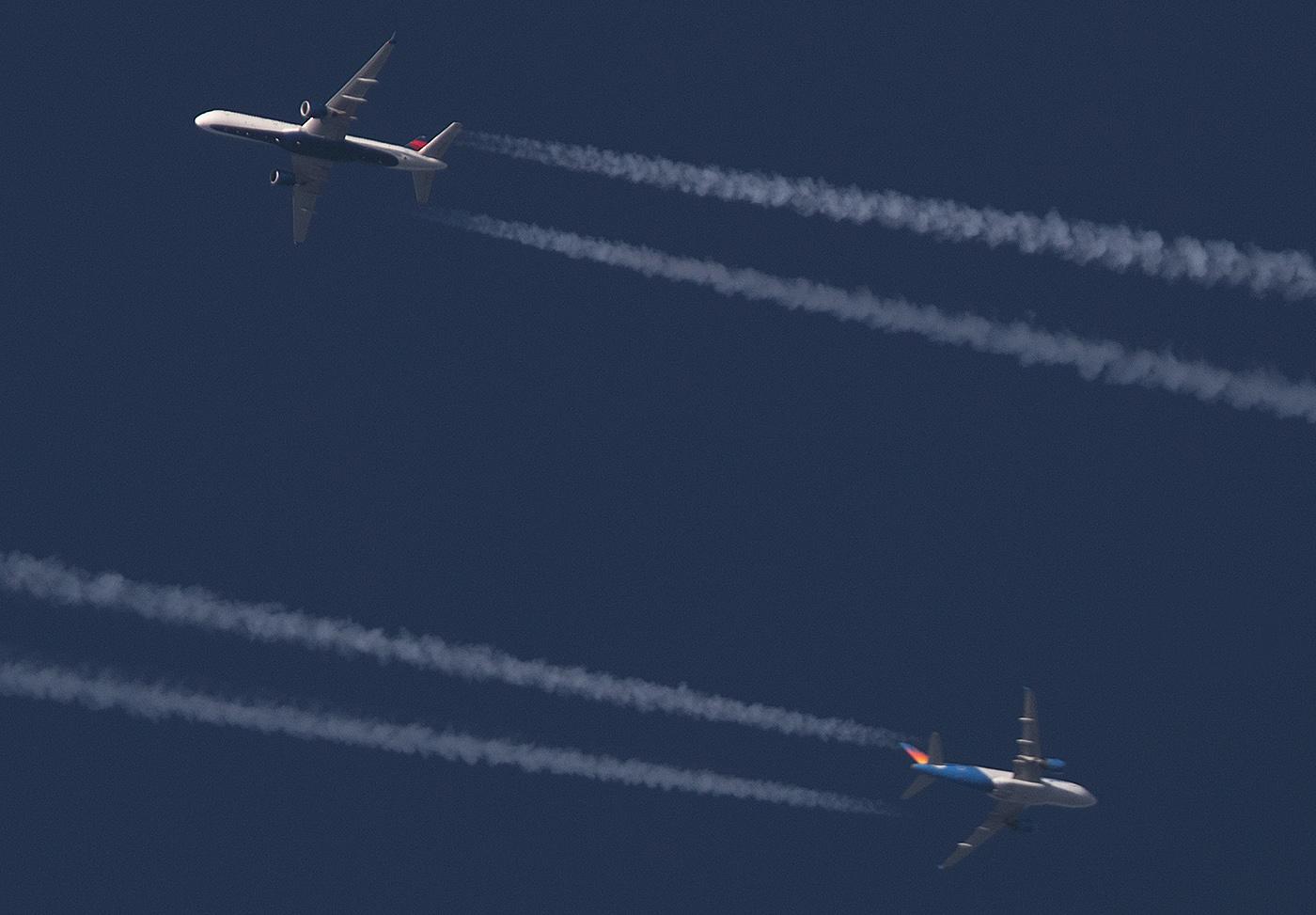COVID-19对航空业的下一个挑战:高铁

一家大型投资银行的最新报告显示,COVID-19危机可能给商用航空业带来的长期挑战又增加了一项,那就是中国和欧洲旅客的高速列车服务可能会更快增长。
To the list of potential long-term challenges to commercial aviation from the COVID-19 crisis, add the likelihood of faster growth in high-speed train services for travelers in China and Europe, according to a new report by a major investment bank.
在4月2日题为《乘火车还是乘飞机?在Covid-19之后,以及在气候变化担忧之中,旅行者的困境》报告中,瑞银(UBS)分析师和研究人员讨论了中国和欧洲消费者从航空转向铁路的时间可能有多快。他们研究了对商务和休闲旅客可能产生的影响,碳排放量的潜在减少以及如何影响各个行业。
In the April 2 report titled, “By train or by plane? The traveler’s dilemma after Covid-19 and amid climate change concerns,” UBS analysts and researchers discuss how soon a shift by Chinese and European consumers away from air to rail could happen. They looked at what the impact might be for both business and leisure passengers, the potential savings in carbon emissions and how industries could be affected.
“对降低碳排放项目的一些投资可能被转用于支持运输和旅游业,但我们认为,发达国家不会放弃到2050年实现碳排放‘净零’的雄心,消费者也不再希望通过更长的火车旅行来优化时间利用,”瑞银团队表示。“因此,我们预计欧洲和中国从飞机到高铁的转变将加速。”
“Some investments for projects to lower carbon emissions may be diverted to supporting the transport and travel industries, but we do not believe the developed world will abandon its ambition of ‘net zero’ carbon emissions by 2050, nor that consumers will no longer want to optimize the use of their time by taking longer train journeys,” the UBS team said. “We, therefore, expect an acceleration in the shift from planes to high-speed rail (HSR) in both Europe and China.”
根据他们的分析,瑞银的团队表示,区域内的空中交通增长可能会更低,因此可能会对航空航天、航空、机场、基础设施和石油行业的交通量和估值造成压力。报告称:“受影响最严重的行业可能会致力于寻找新的商业模式,并开发能够加速减少碳排放的产品和基础设施。”
Based on their analysis, the UBS team said intra-regional air traffic growth could be lower and therefore may weigh on traffic volumes and valuations in the aerospace, airline, airport, infrastructure and oil sectors. “The most significantly affected sectors will likely aim to find new business models, and to develop products and infrastructure that can accelerate the reduction of carbon emissions,” according to the report.
受惠者将是铁路机车车辆、信号、控制和制动器的制造商。
Benefactors would be manufacturers of train rolling stock, signaling, controls and brakes.
根据瑞银证据实验室(UBS Evidence Lab)对中国、法国、德国、意大利和西班牙1000人进行的调查数据,休闲旅客可以忍受在火车上5-6小时,欧盟商务旅客最多可忍受4小时,而普遍认为能忍受2-3小时。与此同时,据瑞银称,在中国,高铁让更多的旅客放弃公路出行,而不是放弃航空出行,但这种情况可能会改变。服务和频率是长途列车需求的关键驱动因素,当运营商之间引入竞争时,两者都可以得到改善。
According to data from a UBS Evidence Lab survey of 1,000 people in China, France, Germany, Italy and Spain, leisure travelers will tolerate 5-6 hours on a train, with EU business travelers up to four hours compared with the consensus of 2-3 hours. Meanwhile, in China, HSR has taken more travelers off the roads than away from airlines, according to UBS, but that could change. Service and frequency are key drivers of demand for longer train journeys, and both can be improved when competition among operators is introduced.
瑞银研究人员估计,2018-28年期间,按收入乘客公里数(RPK)计算的空中交通市场复合年增长率,欧洲内部可能降至0.1%(与空客和波音在2019年预测的4.1%相比),美国内部可能降至1.8%(与3.2%相比),中国内部可能降至6.4%(与8.1%相比)。瑞银团队表示,总体而言,这将使全球航空运输量的年增长预期降至4.6%左右,相对于在COVID-19爆发前,大多数飞机原始设备制造商和运输分析师的10年或20年预测为5.1%。
UBS researchers estimate that the compound annual growth rate in the air traffic market—by revenue passenger kilometers (RPK)—over the 2018-28 period could drop to 0.1% for intra-Europe (compared with the 4.1% assumed by 2019 forecasts from Airbus and Boeing), 1.8% for intra-U.S. (versus 3.2%) and 6.4% for intra-China (against 8.1%). Overall, this would cut the global air traffic growth forecast to about 4.6% annually, versus the 5.1% estimated before the COVID-19 outbreak that most aircraft OEMs and traffic analysts have in their 10- or 20-year outlooks, the UBS team said.
高铁长期以来一直是全球客机增长的潜在威胁者。当被问及他最密切关注的行业增长潜力指标是什么时,波音首席销售员兰迪·廷塞思(Randy Tinseth)告诉《航空周刊》,高铁是一个关键因素。以前,这种威胁源于类似的旅行时间和便利性。然而,可持续性因素越来越可能打破航空旅行和高铁出行之间的平衡。
HSR has long been a background threat to global airliner growth. Asked about what indicators he watched closest for his industry’s growth potential, chief Boeing salesman Randy Tinseth told Aviation Week that HSR was a key factor. Previously the threat stemmed from comparable travel times and ease of use. Increasingly, however, sustainability factors could tip the balance between air travel and HSR.
瑞银团队表示,除了COVID-19引发的经济衰退外,“出行限制可能还因发达国家和新兴国家数周来[及]激发民众养成新习惯(远程工作、使用社交视频通话应用程序)而突然减少排放,并让大多数人体验到更低的污染水平而让人记忆深刻。”
The UBS team said that as well as the economic downturn triggered by COVID-19, “movement restrictions may also be remembered for having abruptly reduced emissions in developed and emerging countries for weeks, [and] triggered new habits (remote working, the use of social video-calling apps) and given a majority of the population the experience of much lower levels of pollution.”
这条消息是Michael Bruno在Aviation Daily发表的文章。《Aviation Daily》为关注商业航空的高管提供真知灼见。每天获取航空公司和机场策略、主要航空公司的数据快照、票价数据以及国际覆盖率。点击此处查看有关Aviation Daily更多消息。